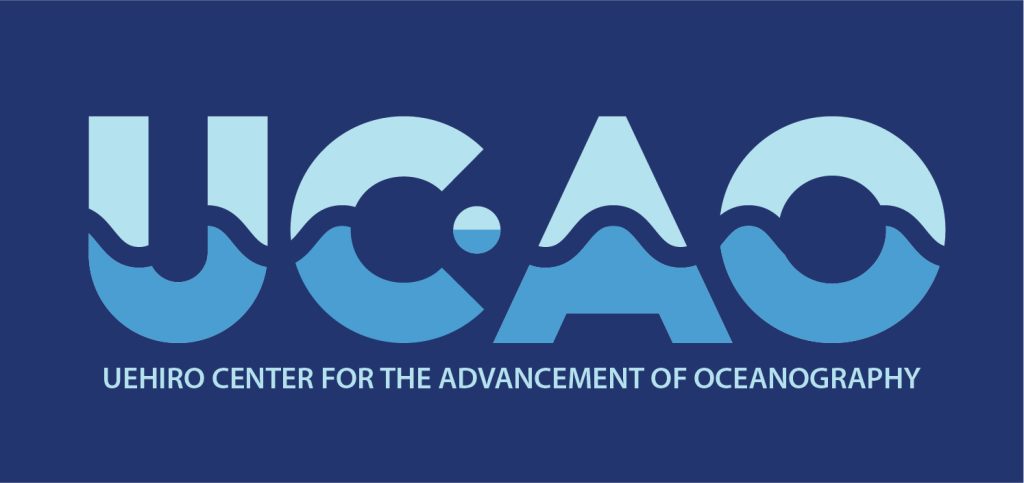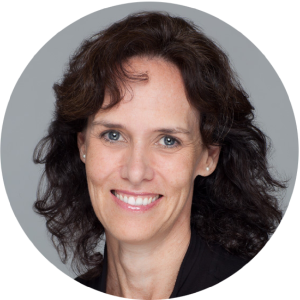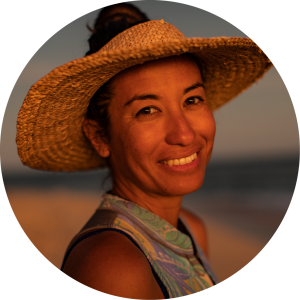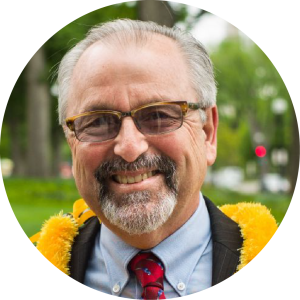
UC•AO director

Dr. Margaret Anne McManus is the Director of the Uehiro Center for the Advancement of Oceanography (UC•AO) at the University of Hawaiʻi at Mānoa (UHM) and the Chairwoman of the Department of Oceanography (on sabbatical July 2023-June 2024) in the School of Ocean and Earth Science and Technology (SOEST). Dr. McManus is a tenured, Full Professor, with 34 years of experience. She heads an established, internationally recognized research program, has received accolades for her excellence in research, teaching and mentoring, and has held key leadership positions in the Department of Oceanography, SOEST, UHM and the national and international oceanographic communities. Dr. McManus earned a PhD in oceanography from the Center for Coastal Physical Oceanography, Old Dominion University (ODU), an MS in oceanography from ODU, and a BA in environmental science from the University of Virginia.
UC•AO advisory council
The Uehiro Center for the Advancement of Oceanography Advisory Council was established to advise the UC•AO on national and international trends in oceanography and to counsel the UC•AO on the array of impacts of climate change on the peoples of Hawaiʻi. The Advisory Council’s participation will help shape the direction of the Center’s research, bringing local to international perspectives.

Dr. Haunani Hiʻilani Kane is a scientist, surfer, and voyager from Kailua, Oʻahu. Dr. Kane’s life is guided by the values and storied history of her kūpuna (ancestors). Her research combines coastal geomorphology, paleo environmental reconstructions, spatial analysis, and the perspectives of a native islander to investigate how islands, reefs, and island people are impacted by changes in climate.
Dr. Kane has been mentored since her youth in traditional Hawaiian wayfinding and navigation with the Polynesian Voyaging Society. She has spent nearly 200 days at sea aboard both sailing and modern research vessels. As a voyager, and a climate scientist Dr. Kane’s research and teaching relies upon reestablishing ancestral relationships to place. Through this process she provides a more inclusive understanding of the impacts of environmental stressors and ensures that the best available climate science data is reflective of all stories of place and their people.

Dr. David Karl is the Victor & Peggy Brandstrom Pavel Professor of Microbial Oceanography and Director of the Daniel K. Inouye Center for Microbial Oceanography: Research and Education (C-MORE) at the University of Hawaiʻi.
In 1973, Dr. Karl participated in his first oceanographic research expedition to the Cariaco Basin aboard the RV Eastward. Since that time Karl has spent more than 1,000 days conducting research at sea including 23 expeditions to Antarctica. In 1988 he co-founded the Hawaii Ocean Time-series (HOT) program that has conducted sustained physical, biogeochemical and microbial measurements and experiments at Station ALOHA on approximately monthly intervals for the past 25 years. In 2006, he led a team of scientists in the establishment of a new NSF-supported Science and Technology Center at the University of Hawaiʻi. C-MORE conducts collaborative research on marine microorganisms from genomes to biomes, and has a vital training mission to help prepare the next generation of microbial oceanographers.
Dr. Karl has received several awards and honors including the G. Evelyn Hutchinson Medal from the American Society for Limnology and Oceanography, the Henry Bryant Bigelow Medal from Woods Hole Oceanographic Institution, the Alexander Agassiz Medal from the U.S. National Academy of Sciences and an honorary DSc degree from the University of Chicago. He is a Fellow of the American Geophysical Union and the American Academy of Microbiology, and a member of the U.S. National Academy of Sciences.

Dr. Roberta Marinelli is the Director of the National Science Foundation’s (NSF) Office of Polar Programs (OPP). A recognized leader in the geoscience community, Dr. Marinelli previously served as the Dean of the College of Earth, Ocean and Atmospheric Sciences, and the Executive Dean for the Earth Systems Science Division at Oregon State University (OSU). She was also the Associate Director for the National Oceanic and Atmospheric Administration’s (NOAA) Cooperative Institute for Climate, Ocean and Ecosystem Studies (CICOES), a partnership between the University of Washington, OSU, and NOAA.
Dr. Marinelli served as the Executive Director of the Wrigley Institute for Environmental Studies at the University of Southern California and as a program director at NSF, where she participated in the development of major ocean programs and cross-directorate initiatives, and advanced international partnerships that support Antarctic research capability. She was among the early recipients of an NSF CAREER award in Chemical Oceanography. She was a member of the National Academy of Sciences, Engineering and Medicine’s (NASEM) committee on “Sexual Harassment of Women: Climate, Culture and Consequences in Academic Sciences, Engineering and Medicine” and “Sea Change: A Decadal Survey of Ocean Sciences.” Dr. Marinelli also served as Liaison to the NASEM committee that produced the report “A Strategic Vision and Implementation Plan for the U.S. Antarctic Program at the National Science Foundation”.

Mr. Chris Ostrander is an oceanographer and business development executive with 15+ years of experience building and leading complex organizations, advancing mission-driven partnerships, and guiding durable growth for a range of academic, government, and private organizations.
Prior to joining the Marine Technology Society, Mr. Ostrander served in a range of leadership roles at the University of Utah spanning technology licensing and commercialization, industry partnerships, foundation & corporate philanthropy, and research administration. Before Utah, Mr. Ostrander served as the assistant dean and director of strategic initiatives for the School of Ocean and Earth Science and Technology (SOEST) at the University of Hawaiʻi at Mānoa. While in Hawaiʻi, he was the co-founder and director of the Pacific Islands Ocean Observing System (PacIOOS). He has launched three companies and helped entrepreneurs and institutions raise more than $450 million in research and philanthropic capital.
Mr. Ostrander received his undergraduate and graduate education from the United States Military Academy at West Point (geography), the Johns Hopkins University (political theory), and the University of Hawaiʻi (physical oceanography).